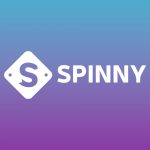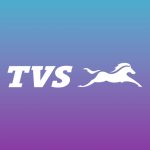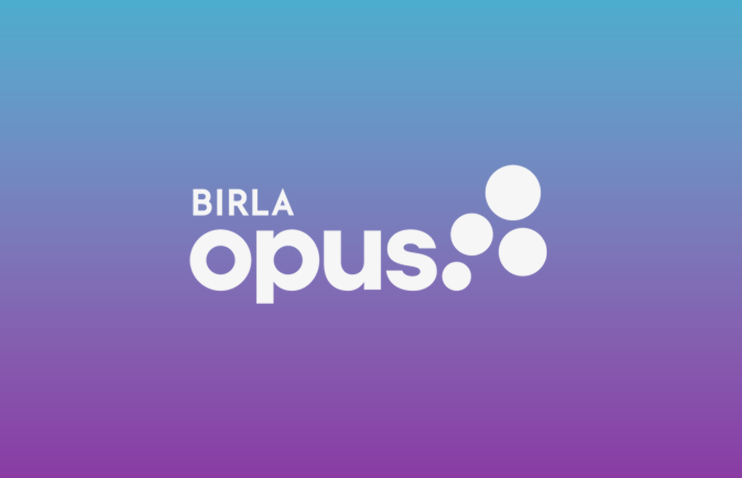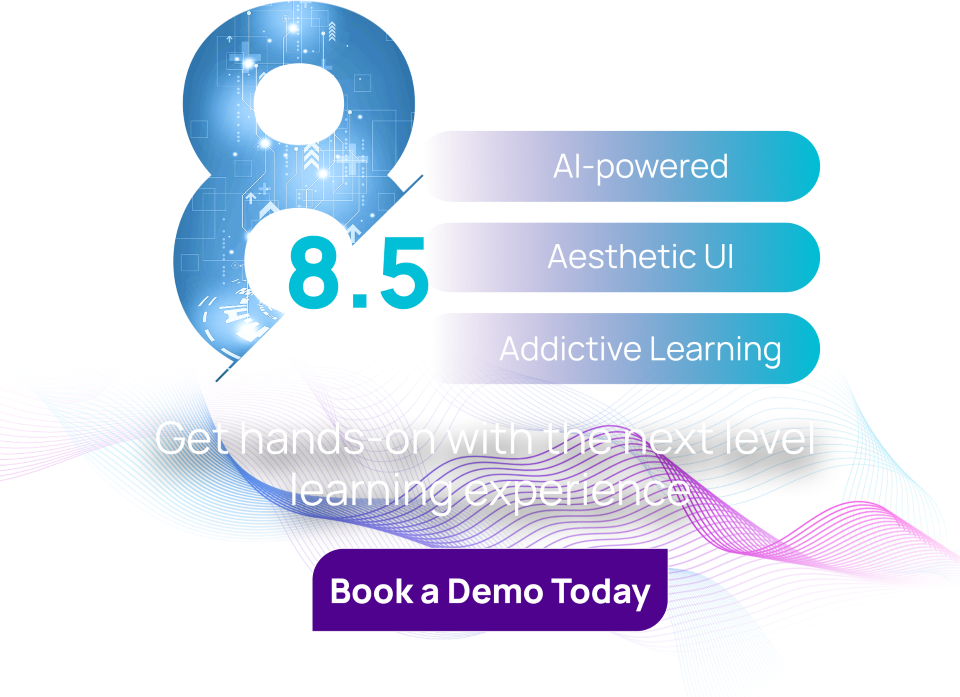
Spinny Boosts Sales Performance by 60% with Training through Tenneo LMS
September 16, 2024
TVS Motor Company Enhances Learning Engagement by 40% with Tenneo LMS
May 9, 2025Birla Opus Boosts Learning Engagement by 70% with Tenneo LMS

Client:
Birla Opus
Industry:
Chemical Manufacturing
In the competitive paint industry, where quality, innovation, and efficiency are paramount, ensuring a well-trained, highly skilled workforce is crucial for success. The challenges of training a diverse workforce, ranging from blue-collar workers to white-collar professionals can be daunting. This is coupled with the need for consistent compliance, high engagement, and seamless training delivery across geographically dispersed locations.
This case study explores the journey of Birla Opus and how they transformed their training landscape and made learning trule matter by partnering with Tenneo. Discover how Tenneo’s tailored LMS solution helped Birla Opus link learning with performance, boost employee engagement by 70%, and ensure compliance, all while aligning learning programs with business goals to achieve seamless success.
About the Client
Birla Opus, a company within the Aditya Birla Group, operates in the competitive paint industry. Known for its extensive product range, Birla Opus offers over 145 products and 1,200+ SKUs, including water-based paints, enamels, wood finishes, designer finishes, waterproofing solutions, and textures. The company caters to a broad customer base, from economy to premium and luxury segments, as well as institutional clients. With 2,300+ tintable shades, including 216 iconic Indian shades, Birla Opus empowers customers to create their masterpieces.
Birla Opus is not just a paint manufacturer; it is a pioneer in the industry, offering the first-of-its-kind direct painting service, PaintCraft. This service is supported by six strategically located, fully automated manufacturing plants across India, with a total commercial capacity of 1,332 million liters per annum (MLPA). These facilities represent a 40% increase in the industry’s current capacity, placing Birla Opus at the forefront of innovation and efficiency in paint production. The plants, located in Panipat (Haryana), Ludhiana (Punjab), Cheyyar (Tamil Nadu), Chamarajanagar (Karnataka), Mahad (Maharashtra), and Kharagpur (West Bengal), are equipped with 4th generation manufacturing technology, ensuring zero defects, end-to-end traceability, and sustainable operations with zero liquid discharge.
Business Requirement
Birla Opus sought a robust LMS to standardize training across diverse locations, ensuring that all employees received consistent, high-quality learning experiences.
1. Comprehensive LMS for Diverse Employee Training:
They required an LMS that could cater to the diverse learning needs of its workforce. The company’s employee base includes both white-collar professionals and blue-collar workers, totaling 4,500 employees and associates. Additionally, 1,800 partners, who are crucial to the company's distribution and sales network, needed to be trained. A one-size-fits-all approach would not suffice for such a diverse group. Therefore, a comprehensive LMS that could tailor training content to meet the specific needs of each group was essential.
2. AI-driven Video Assessment Functionalities:
The paint industry relies heavily on visual and practical skills, making traditional assessment methods less effective. Birla Opus sought an LMS with AI-driven video assessment capabilities to accurately evaluate these skills. Video assessments would allow the company to assess competencies in a more realistic and practical manner, providing insights into areas such as application techniques, color matching, and quality control.
3. Standardization and Consistency in Learning:
With a workforce spread across multiple locations and roles, standardizing learning content and ensuring consistency in training delivery was critical. Inconsistent training could lead to varying levels of competency among employees, which would be detrimental to the company’s brand and operational efficiency. By standardizing training across all locations, Birla Opus aimed to maintain a uniform standard of excellence, ensuring that all employees, regardless of their location, received the same high-quality training.
4. Enhanced Learning Engagement:
To maximize the effectiveness of training programs, Birla Opus needed to enhance learning engagement. The company recognized that passive learning methods would not suffice in keeping employees motivated and involved. Gamification in learning would ensure that employees are not only participating in training but are also engaging with the learning programs.
5. Prioritization of Compliance:
Compliance with industry regulations and internal policies is non-negotiable in the paint industry, where safety, environmental standards, and quality control are paramount. Birla Opus needed an LMS that could enforce compliance by ensuring that all employees completed mandatory and role-based training on time. The LMS would need to track training completion rates meticulously and send reminders to those who are falling behind.
6. Mobile Access for On-Demand Learning:
Given the geographically dispersed nature of Birla Opus’s workforce, it was crucial to provide employees with on-demand access to training materials. A mobile-friendly LMS would allow employees to learn at their own pace, whether they are in the office, at a manufacturing plant, or on the go.
Key Challenges
The company grappled with decentralization in training, lack of content customization, and difficulties in tracking training effectiveness and compliance. Here are the challenges they faced in their quest to enhance the workforce learning experience:
1. Diverse Learner Groups and Needs:
The diversity of the workforce, with its mix of white-collar professionals, blue-collar workers, and partners, presented a significant challenge. Each group had distinct learning needs and levels of prior knowledge, making it difficult to design a one-size-fits-all training program. Without a tailored approach, there was a risk that some employees would not receive the training they needed to excel in their roles, leading to gaps in knowledge and skills across the company.
2. Geographically Dispersed Workforce:
Birla Opus’s operations are spread across multiple locations, each with its own unique challenges. Managing and delivering consistent training across such a dispersed workforce was a major challenge. Without a centralized system, there was a risk of inconsistencies in training content and delivery, which could lead to varying levels of competence and performance across different regions.
3. User Management and Streamlining Training Delivery:
The scale of their operations required a sophisticated system for managing users and streamlining the delivery of training. With thousands of employees and partners to train, manual processes were inefficient and prone to errors. Without an effective LMS, there was a risk of training programs being misaligned with job roles, leading to ineffective learning outcomes and wasted resources.
4. Mapping Training Programs with KPIs:
To ensure that training efforts translated into tangible business outcomes, Birla Opus needed to map its training programs to key performance indicators (KPIs). Without this alignment, it would be difficult to measure the impact of training on business performance, leading to potential underinvestment in critical training areas.
5. Tracking Learning Progress:
Ensuring that all employees completed their training was crucial, but without a robust tracking system, it was difficult to monitor progress and identify those who were falling behind. This posed a risk to compliance, as well as to the overall effectiveness of the training programs. Any lapses in training completion could result in gaps in knowledge and skills, negatively impacting operational efficiency and safety.
6. Decreasing Learning Engagement:
As training programs grew in scope and complexity, there was a noticeable decline in learner engagement. Without high levels of engagement, the effectiveness of training programs would be compromised, leading to lower retention of knowledge and reduced application of skills in the workplace. This would ultimately hinder the company’s ability to innovate and maintain its competitive edge in the industry.
Approach and Solution
Tenneo LMS provided two variants: GROW variant for Employee & Associates’ training and LEARN+ variant for Partners’ training. The learning platform was named 'Opus Flex'. The platform provided a comprehensive solution with tailored learning paths, advanced AI tools, seamless integration, and engaging features to address their challenges.
1. Tailored Learning Paths:
Tenneo LMS provided Birla Opus with the ability to create tailored learning paths for each learner group. This customization ensured that every employee and partner received training that was relevant to their role and skill level. For example, blue-collar workers received hands-on training focused on safety protocols and technical skills, while white-collar employees were offered courses on leadership, project management, and strategic decision-making. By aligning training with the specific needs of each group, Tenneo LMS helped them close skill gaps and improve overall workforce competency.
2. Learning Management Module:
The robust learning management module of Tenneo LMS enabled the delivery of a wide variety of content types, from video tutorials to interactive modules, ensuring that all learning styles were accommodated. This module allowed Birla Opus to standardize training delivery across all locations, ensuring that every employee received the same high-quality training, regardless of their geographic location. Standardized training led to consistent product quality and service delivery, which are critical in maintaining the company's reputation and market position.
3. AI-driven Video Assessments:
Tenneo LMS integrated Awarathon, an AI-driven video assessment platform, directly into its system. This allowed the company to conduct practical assessments that were more reflective of real-world tasks, such as paint application techniques and quality inspections. The video assessments provided detailed analytics and insights into each employee's performance, helping managers identify areas for improvement and tailor future training accordingly.
4. System Integrations for Effective User Management:
Tenneo LMS offered seamless integration with several of their existing systems, including:
- Salesforce Integration: Tenneo LMS integrates with Salesforce to map job roles and collect performance data across approximately 25 roles, encompassing around 175 key performance indicators (KPIs). This integration ensures accurate tracking and alignment of training with specific job requirements.
- Data Lake Integration: Tenneo LMS integrates with their Data Lake for efficient user data management. This integration centralizes data storage and analysis, enabling streamlined access and reporting.
- MS Azure and Office 365 Integration: This facilitates the use of MS Teams for virtual training sessions and provides access to MS Office tools. This ensures a unified experience for virtual collaboration and document management.
5. Gamification and Engagement Tools:
Tenneo LMS incorporated gamification elements, such as leaderboards, badges, and rewards, to boost learner engagement. These tools made learning more interactive and fun, encouraging employees to participate actively in their training programs. The increased engagement led to higher knowledge retention and application, resulting in improved job performance and innovation within the company.
6. Smart Notifications:
To ensure that no employee or partner missed out on essential training, Birla Opus utilized Tenneo LMS's Smart Notifications feature. This tool automatically sent reminders for upcoming training, certification renewals, and new courses, tailored to each user’s role and progress. By delivering notifications via mobile alerts, Birla Opus ensured timely course completion, supporting continuous learning and compliance across their diverse workforce.
7. Compliance Management Module:
The compliance management module of Tenneo LMS ensured that all employees completed their mandatory training on time, with automated tracking and reminders. This helped Birla Opus maintain compliance with industry regulations and internal policies, reducing the risk of legal penalties and operational disruptions. The module also provided detailed reports on training completion rates, allowing the company to monitor compliance closely and take corrective action when necessary.
8. Mobile-first LMS:
Tenneo LMS was designed to be mobile-first, providing employees with on-demand access to training materials via their smartphones and tablets. This flexibility allowed employees to learn at their own pace, whether they were in the office, at a manufacturing plant, or on the road. The mobile-friendly design ensured that training was accessible to all employees, regardless of their location, and that learning did not disrupt daily operations.
Impact
The implementation of Tenneo LMS led to enhanced workforce competency, increased engagement, ensured compliance, and aligned training with business goals.
1. Enhanced Workforce Competency:
By implementing Tenneo LMS, Birla Opus was able to significantly enhance the competency of its workforce. The tailored learning paths and AI-driven video assessments ensured that every employee received training that was relevant to their role and skill level, closing skill gaps and improving overall workforce performance. The consistent training delivery across all locations also helped maintain a uniform standard of excellence, ensuring that all employees were equipped with the skills and knowledge needed to perform their roles effectively.
2. Increased Learning Engagement:
The gamification elements and engagement tools incorporated into Tenneo LMS led to a significant increase in learner engagement. Participation rates increased by 70%. The higher levels of engagement resulted in better knowledge retention and application, leading to improved job performance and innovation within the company.
3. Seamless Mobile Learning:
The mobile-first design of Tenneo LMS provided employees with on-demand access to training materials, leading to a 50% increase in mobile learning sessions. This flexibility made learning more accessible and ensured that training did not disrupt daily operations. The increased accessibility also helped employees stay updated with the latest techniques and industry trends, contributing to the company’s competitive edge in the paint industry.
Testimonial
"As a newly established company with ambitions to lead our sector, we understand that success is possible only with having a highly skilled workforce. From day one, our vision was clear: to cultivate an environment where continuous learning and professional development are at the core of our operations. To achieve this, we needed a robust learning management system that could scale with our rapid growth and align seamlessly with our strategic goals.
Over a year was invested to pick the right partner for this journey and after rigorous evaluations; we made the decision to onboard Tenneo, and the impact has been nothing short of transformative. Despite our relatively short time with the platform, Tenneo has already proven to be a crucial element in our journey. It has empowered our teams with the tools and resources they need to upskill efficiently, ensuring that we are not only meeting the demands of today but also preparing for the challenges of tomorrow.
The ease of use, coupled with the vast array of features, has allowed us to tailor our learning pathways to the specific needs of our workforce. The immediate benefits are evident in the confidence among our employees, who are now more equipped than ever to take the market with a storm. In just a few short months, Tenneo has already made a significant contribution to our vision, and we are confident that it will continue to be a key partner in our success story for years to come."
Sneha Dharmarajan,
Digital Learning Leader, Birla Opus.

